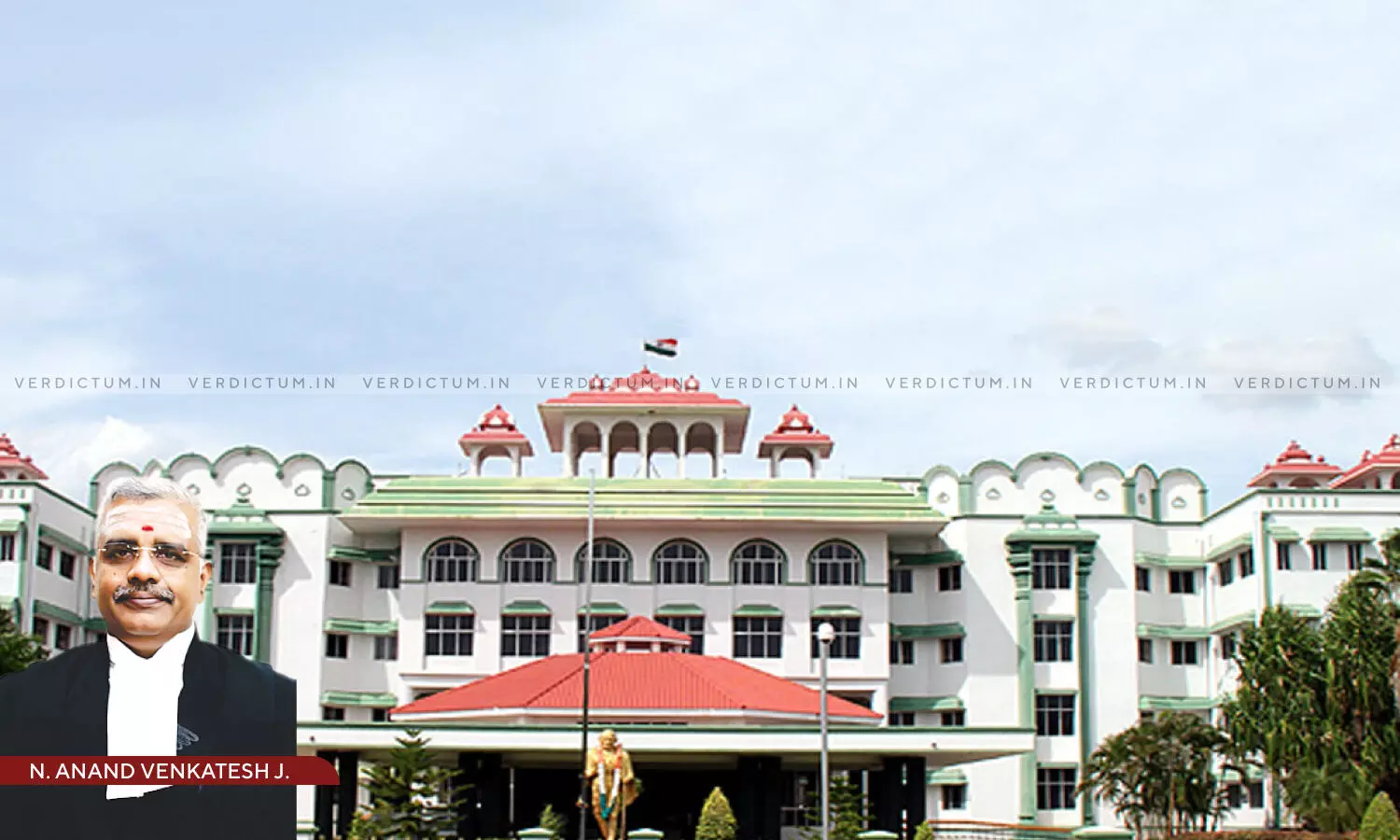
State Has No Authority To Regulate Affairs Inside Private Spaces: Madras HC Orders Return Of Bharat Mata Statue Seized From BJP Office
 |
|The Madras High Court directed the Virudhunagar district authorities to return a statue of Bharat Mata (Mother India) that had been unlawfully seized from the Bharatiya Janata Party (BJP) office in Kottaipatti village.
The ruling came in response to a plea filed by the BJP, led by District President G. Pandurangan, seeking the return of the statue and preventing further interference with their right to install the statue at their office.
The statue, which had been installed by the BJP in their office premises, was removed by the authorities citing state government guidelines regulating the installation of statues.
A Bench of Justice N. Anand Venkatesh observed that while the installation of statues on public property requires prior approval from state authorities, such regulations do not extend to the private domain of an individual's home or office. It said, “It is not the business of the State and its officers to control or regulate the affairs inside the private space of a citizen. Such a course is constitutionally forbidden,"
Senior Advocate Ananda Padmanaban appeared for the Petitioner, while Additional Advocate General Veerakathiravan appeared for the Respondents.
The Court was particularly critical of the manner in which the authorities had seized the statue, stating that their actions seemed to be driven by external pressure. The Court said, "I have no doubts in my mind that the respondents have high-handedly taken away the statue of Bharatha Matha from a private property, probably due to pressure exerted elsewhere. This act on the part of the respondents is highly condemnable and should never be repeated in future. We are living in a welfare State which is governed by Rule of Law. Therefore, such high-handedness can never be tolerated by a Constitutional Court exercising its jurisdiction under Article 226 of the Constitution of India",
The court pointed out that the installation of a statue of Bharat Mata in one's private space, such as a garden or an office, is a deeply personal and symbolic gesture that embodies respect for the motherland. It is an expression of patriotism, unity, and national pride, which invites reflection on the ideals of freedom, resilience, and cultural identity. Such installations are akin to creating a personal shrine, and they should not be subjected to undue regulation or removal by government authorities, especially when they are placed on private property.
The ruling also highlighted the fundamental duty of citizens under Article 51-A of the Indian Constitution, which enjoins citizens to promote values such as love and respect for their country. The Court added, "No person in his right senses could seriously contend that expressing one’s patriotism and love for one’s country would imperil the interests of the State or the community. Indeed, the position is precisely the converse as the Constitution itself enjoins the citizen to promote such values in terms of the Fundamental Duties under Article 51-A."
The Court asserted that the installation of a Bharat Mata statue on private property does not pose a risk to public order or community sentiment. The Court added, “The installation of a statue of Bharatha Matha on private property is a deeply personal and symbolic act that reflects an individual’s reverence for their motherland. Unlike public figures, whose statues often require permissions due to their potential impact on public sentiment and communal harmony, the installation of a statue representing one’s cultural and national identity in a private space can be viewed through a different lens. While it is essential to respect local laws and community sentiments, the act of honoring Bharatha Matha is fundamentally an expression of love and pride. It serves as a reminder of the values and sacrifices associated with one’s heritage.”
The Madras High Court ruled in favor of the BJP, directing the district authorities to return the seized statue to the party. The Court emphasized that the installation of statues in private spaces should be protected as an expression of personal values and patriotism, free from undue state interference.
Cause Title: Bharathiya Janatha Party v. The District Collector & Ors., [2024:MHC:3835]
Appearance:
Petitioner: Senior Advocate Ananda Padmanaban for Vanangamudi
Respondents: Additional Advocate General Veerakathiravan and Additional Public Prosecutor S.Ravi